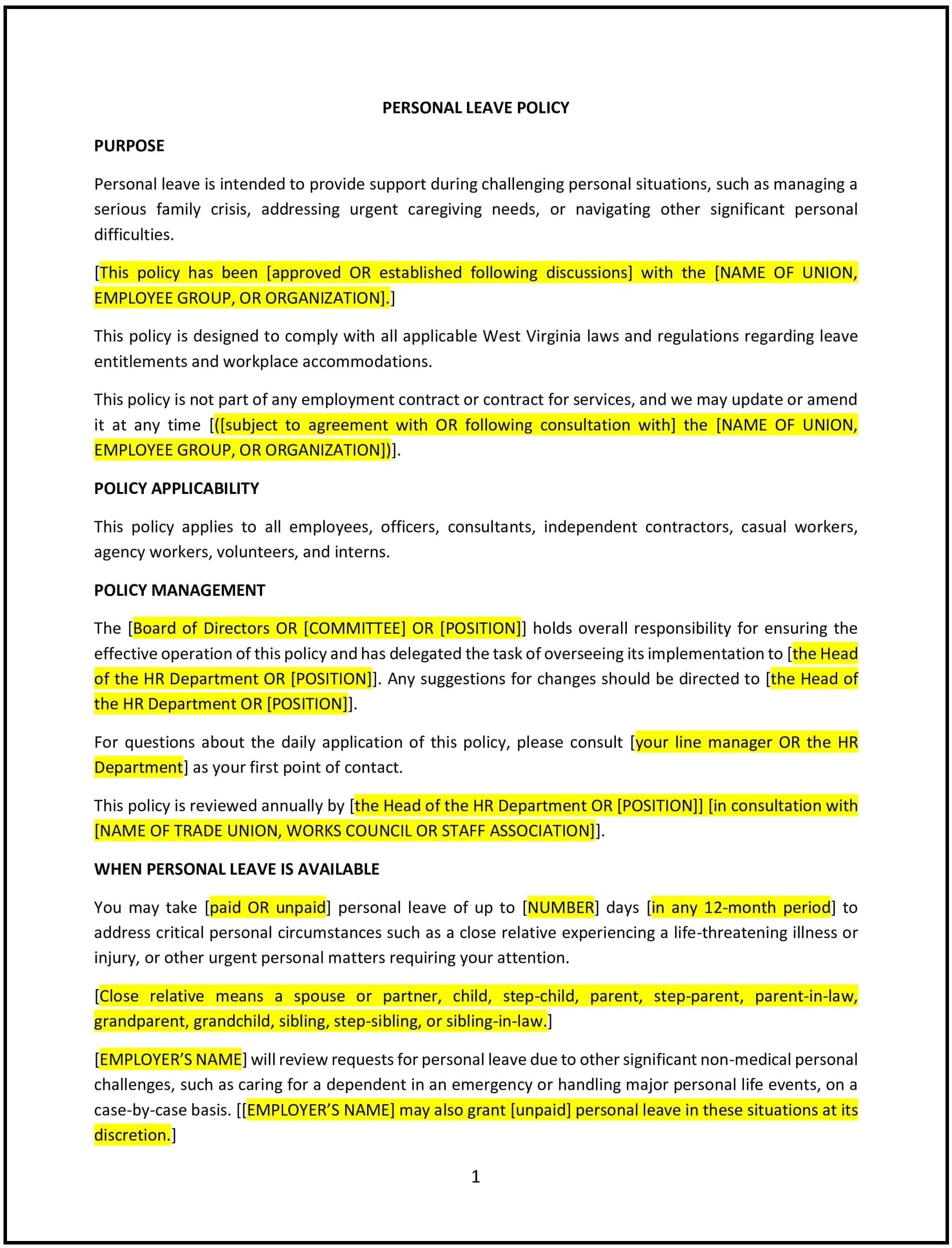Personal leave policy (West Virginia): Free template
Got contracts to review? While you're here for policies, let Cobrief make contract review effortless—start your free review now.

Customize this template for free
Personal leave policy (West Virginia)
In West Virginia, a personal leave policy provides employees with the opportunity to take time off for personal reasons that do not fall under other leave categories. This policy ensures employees can manage personal obligations while balancing workplace needs. It outlines eligibility, request procedures, and the terms of leave to promote transparency and consistency.
The policy defines personal leave as unpaid or paid time off, depending on organizational practices, and supports compliance with applicable labor laws.
How to use this personal leave policy (West Virginia)
- Define personal leave: Specify the circumstances under which personal leave can be requested, such as attending to family matters, personal health needs, or other non-work-related obligations.
- Establish eligibility: Outline criteria for employees to qualify for personal leave, such as employment tenure or the availability of accrued paid time off (PTO).
- Provide request procedures: Detail how employees can request leave, including notice periods, documentation requirements, and approval processes.
- Address leave duration: Set guidelines for the minimum and maximum duration of personal leave, depending on the organization’s policies.
- Support compliance: Ensure the policy aligns with West Virginia labor laws and federal regulations to maintain fairness and legal adherence.
Benefits of using a personal leave policy (West Virginia)
- Promotes work-life balance: Allows employees to manage personal responsibilities without compromising their job security.
- Enhances employee satisfaction: Demonstrates the organization’s commitment to supporting employees during personal challenges.
- Provides clarity: Establishes clear guidelines for requesting and managing personal leave, reducing misunderstandings.
- Supports compliance: Aligns with West Virginia labor laws and federal regulations to help ensure fair and lawful leave practices.
- Improves workplace morale: Fosters trust and respect by accommodating employees’ personal needs.
Tips for using a personal leave policy (West Virginia)
- Communicate the policy: Share the policy with employees during onboarding and ensure it is accessible for reference when needed.
- Train managers: Equip supervisors with the knowledge to handle personal leave requests fairly and consistently.
- Maintain records: Keep detailed documentation of leave requests and approvals to ensure transparency and compliance.
- Monitor workplace impact: Plan for coverage or workload redistribution during employees’ personal leave to maintain operational continuity.
- Review periodically: Update the policy to reflect changes in West Virginia laws, organizational practices, or employee feedback.